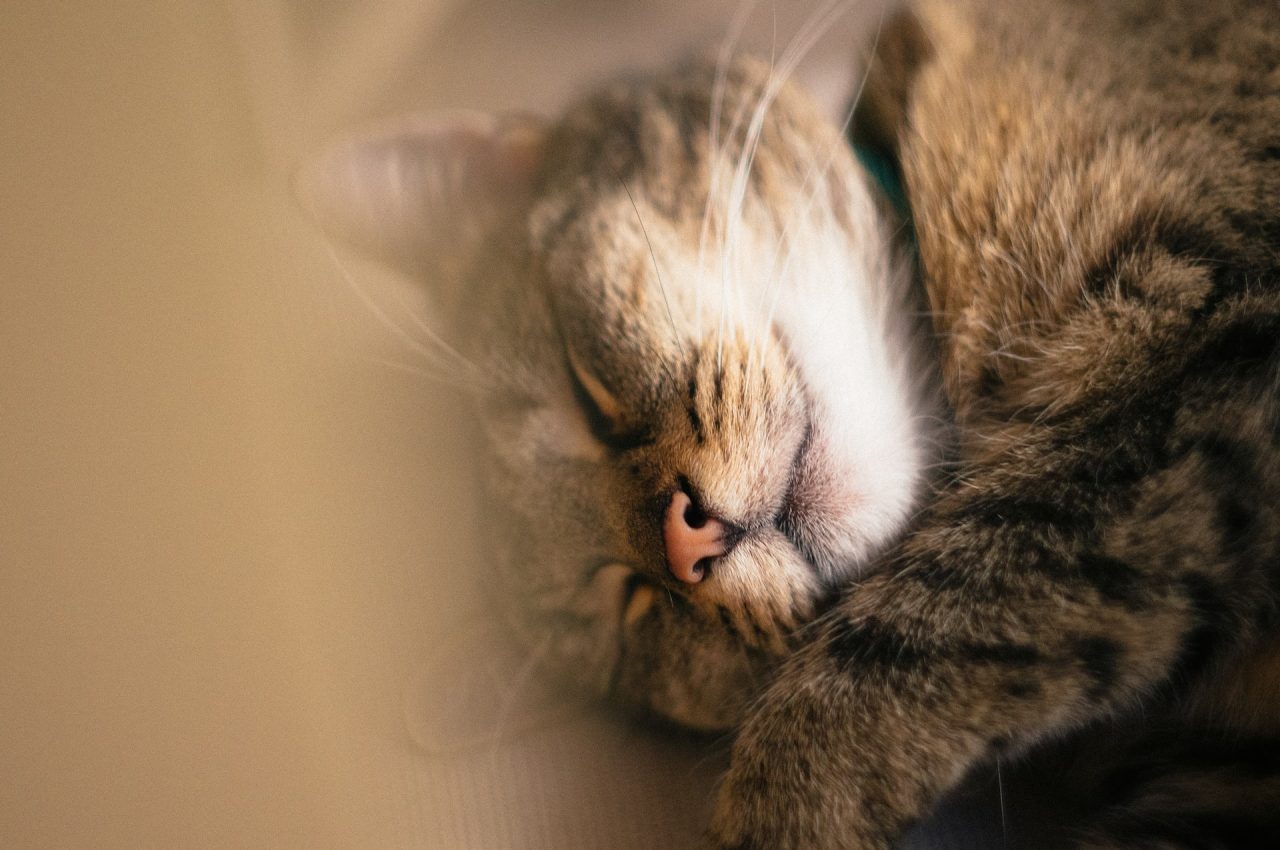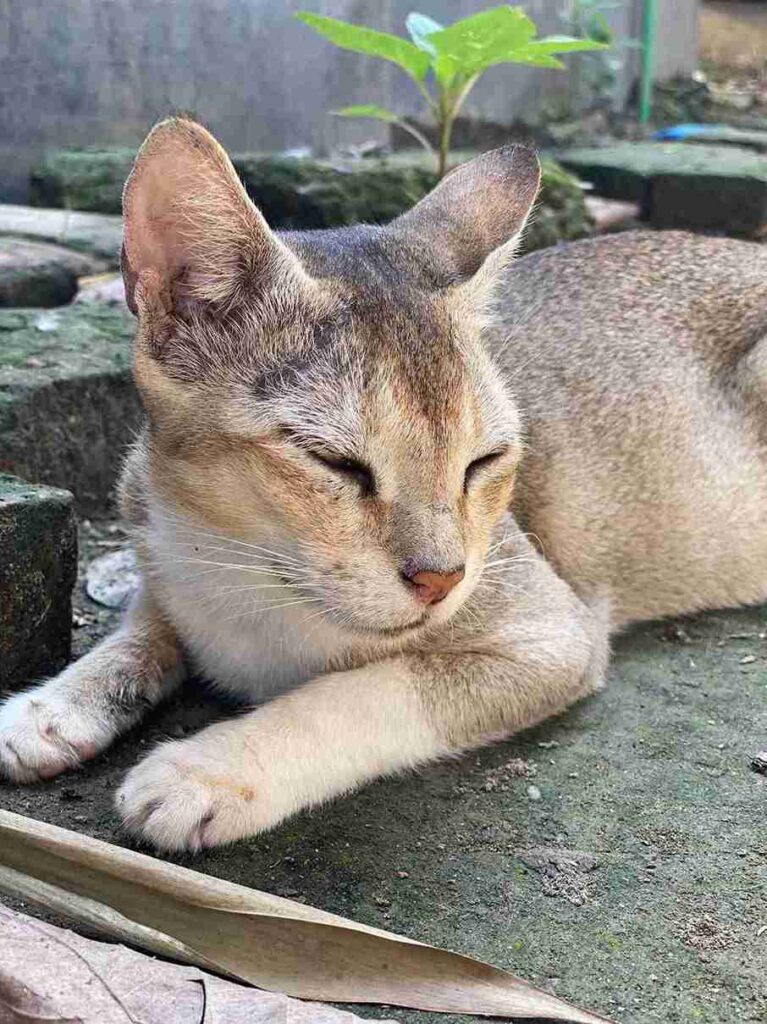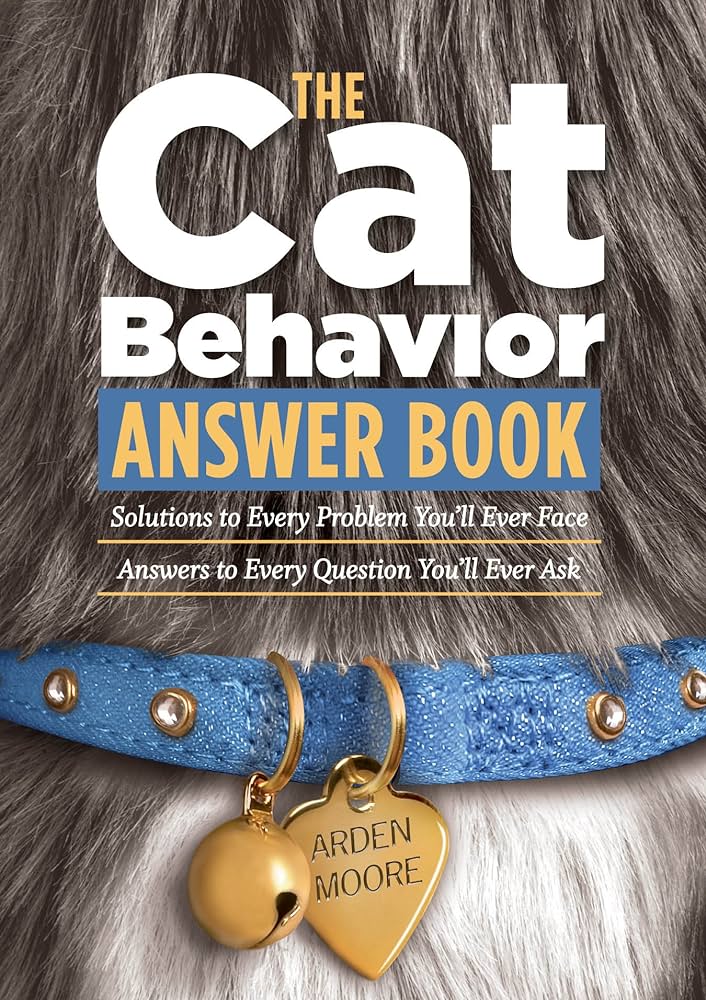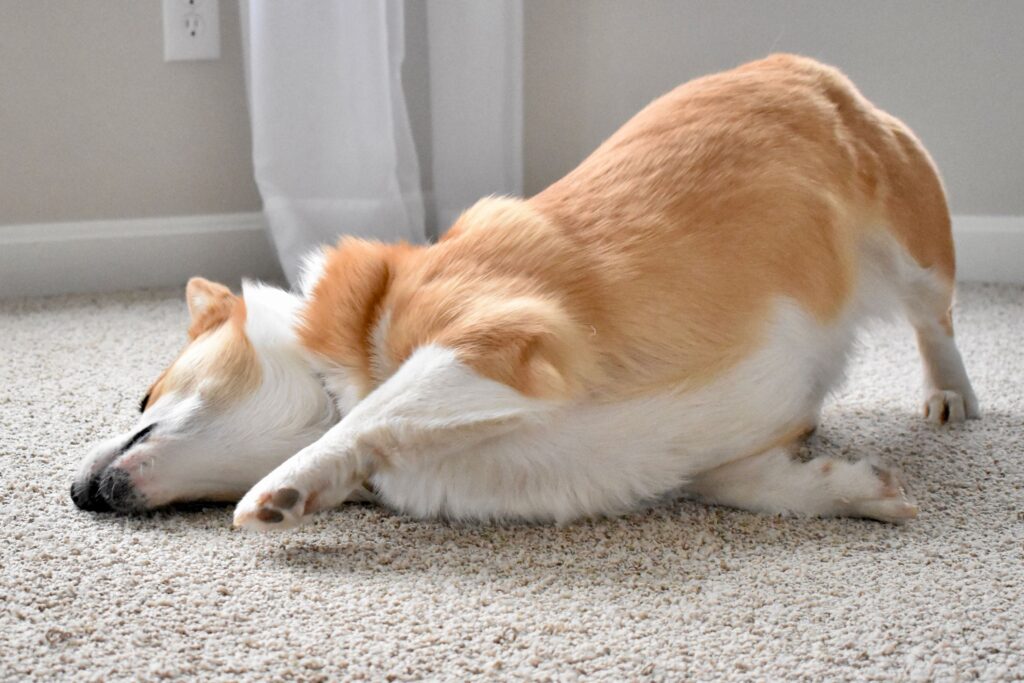One possible answer to the question “Why Does My Cat Huff? How To Stop Such “Hissterical” Behavior?”
Is that cats huff as a way of expressing their frustration or as a defensive behavior. To stop this behavior, it is important to identify the triggers that cause your cat to huff and address them accordingly. Now, let’s delve into the topic further.
Cats can be mysterious creatures, and their behaviors sometimes leave us scratching our heads. One behavior that can be both amusing and puzzling is huffing. If you’ve ever heard your cat emit a short, sharp exhale through their nose, that’s the sound of a huff. But why do cats huff, and how can you stop such “hissterical” behavior? We will explore the reasons behind cat huffing and provide some practical tips to help you manage and minimize this behavior. Understanding why cats huff is the first step in addressing and potentially curbing this behavior, so let’s get started.
Contents
- 1 Understanding Cat Huffing: A Feline Mystery Unraveled
- 2 Root Causes Of Cat Huffing: A Multifaceted Issue
- 3 Addressing Physical Triggers For Cat Huffing
- 4 Unraveling Psychological Factors Behind Cat Huffing
- 5 The Power Of Play: Reversing Cat Huffing Through Enrichment
- 6 Communication And Behavior Modification Techniques For Cat Huffing
- 7 Seeking Professional Help For Cat Huffing Issues
- 8 Case Studies: Success Stories Of Cat Huffing Resolution
- 9 Preventing Cat Huffing: Long-term Strategies
- 10 A Harmonious Life With Your Cat: Celebrating A Huff-free Existence
- 11 Frequently Asked Questions For Why Does My Cat Huff? How To Stop Such “hissterical” Behavior?
- 12 Conclusion
Understanding Cat Huffing: A Feline Mystery Unraveled
- Huffing is often misunderstood as a sign of aggression, but it is actually a defensive behavior. Cats may huff as a way to communicate their discomfort or fear.
- Some cat owners mistakenly believe that huffing is a form of hissing. While both behaviors involve vocalization, huffing is typically a softer and shorter sound compared to the more intense and sustained sound of hissing.
- Many people assume that huffing always precedes an attack, but this is not necessarily the case. Cats may huff as a warning to maintain their personal space or to express displeasure.
- Listen for short, sharp exhales or soft puffs of air from your cat.
- Observe your cat’s body language, such as flattened ears, dilated pupils, or a tense posture.
- Take note if huffing is accompanied by other signs of agitation, such as growling or swatting.
Understanding and responding to cat huffing is important for building a strong bond with your feline companion. By recognizing the signs and providing a safe and calm environment, you can help alleviate their stress and reduce huffing episodes.

Credit: catschef.com
Root Causes Of Cat Huffing: A Multifaceted Issue
Cat huffing can have various underlying causes, such as stress, fear, or illness. Understanding and addressing these issues through appropriate measures can help in curbing this “hiss-terical” behavior.
Physical Factors That Trigger Huffing In Cats
Huffing in cats can be triggered by various physical factors. One common cause is respiratory issues such as allergies, asthma, or an upper respiratory infection. Cats may also huff if they have an obstruction in their airways, such as a foreign object or excessive mucus. Dental problems, including gum disease or tooth abscesses, can also lead to huffing as it may cause discomfort or pain while breathing or eating. Obesity and excess weight can put additional strain on a cat’s respiratory system, leading to huffing. It is important to identify and address any underlying physical conditions to alleviate huffing in cats.
Psychological Factors That Contribute To Cat Huffing
Psychological factors can also contribute to cat huffing. Cats may huff when they feel stressed, anxious, or fearful. Changes in their environment, such as a move to a new house or the introduction of a new pet, can trigger huffing behavior. Lack of socialization, boredom, or confinement can also lead to stress and huffing. Cats may huff to communicate their displeasure or to establish boundaries with other animals or humans. Providing a stimulating and enriching environment, along with positive reinforcement training, can help reduce huffing caused by psychological factors.
Addressing Physical Triggers For Cat Huffing
It’s important to address any underlying health issues that may be causing your cat to huff. Cats can huff due to various medical conditions such as respiratory infections, allergies, asthma, or dental problems. Monitor your cat for any signs of discomfort, difficulty breathing, coughing, or sneezing. If you notice these symptoms, it’s recommended to consult your veterinarian for a proper diagnosis and treatment.
In addition to medical issues, creating a stress-free environment for your cat can help reduce huffing behavior. Make sure your cat has a calm and quiet space to retreat to, away from any potential stressors. Provide environmental enrichments such as scratching posts, toys, and hiding spots to promote mental stimulation and reduce anxiety. Establish a consistent routine and provide a comfortable and secure sleeping area for your cat.
Unraveling Psychological Factors Behind Cat Huffing
For cat owners, understanding the psychological factors behind their feline companion’s huffing behavior is crucial in order to address the issue and foster a harmonious bond. Cats may resort to huffing when facing environmental stressors that disrupt their sense of security and comfort. These stressors can include changes in their surroundings, such as moving to a new home or having new family members, as well as encounters with unfamiliar animals or loud noises.
One essential step in resolving this behavior is identifying and minimizing these stressors. Creating a safe and enriched environment with hiding spots, vertical space, and interactive toys can help alleviate anxiety. Additionally, establishing a consistent routine for feeding, playtime, and social interaction can provide a sense of stability for your cat.
Positive reinforcement through treats, praise, and gentle strokes can encourage desired behaviors and reinforce the bond between you and your feline companion. It is essential to avoid punishing or scolding your cat for huffing, as this can exacerbate their anxiety.
Through patience, understanding, and an empathetic approach, you can address your cat’s huffing behavior and foster a positive, trusting relationship with your feline friend.
The Power Of Play: Reversing Cat Huffing Through Enrichment
The Power of Play: Reversing Cat Huffing Through Enrichment
If you’ve noticed your cat huffing, don’t worry, there are ways to help stop this “hissterical” behavior. Engaging your cat in interactive play and exercise can work wonders in reversing huffing habits. Play is more than just a way to have fun; it’s a powerful tool in promoting a healthy and happy feline life.
Interactive play allows your cat to release excess energy, reducing stress and anxiety that may contribute to huffing. It also provides mental stimulation, keeping their minds active and sharp. Make sure to engage them with toys that mimic prey-like movements, enticing their natural instincts to pounce and chase.
Exercise is equally important. Encourage your cat to get moving through activities such as laser pointers, feather wands, or interactive treat puzzles. By stimulating their bodies and minds, you can help them channel their energy in positive ways, leaving less room for huffing behavior.
Communication And Behavior Modification Techniques For Cat Huffing
Cat body language and how it relates to huffing: Understanding your cat’s body language is crucial in addressing huffing behavior. Cats may huff to communicate their displeasure, fear, or frustration. Tail flicking, flattened ears, and dilated pupils are often signs of a distressed cat. By recognizing these signs, you can better respond to their needs.
Positive reinforcement training to modify huffing behavior: Start by creating a safe and calm environment for your cat. Use treats or affection as rewards for desirable behavior, like proper socialization and play. Avoid punishment, as it may exacerbate the huffing behavior. Focus on building trust and slowly expose your cat to what triggers their huffing, using gradual desensitization techniques.
Redirecting attention and promoting play: Provide plenty of opportunities for exercise and mental stimulation with toys, scratching posts, and interactive games. This helps redirect your cat’s attention and energy away from huffing. Make sure to engage in regular play sessions to strengthen your bond and establish positive associations.
Seeking professional advice: If your cat’s huffing persists or escalates, consult with a veterinarian or a certified animal behaviorist. They can assess your cat’s behavior and provide tailored recommendations for modifying the huffing behavior effectively.
Seeking Professional Help For Cat Huffing Issues
When your cat consistently displays huffing behavior, it may be beneficial to consult a veterinarian or feline behavior specialist. While mild huffing can be normal, severe or persistent cases may indicate underlying health or behavioral problems that require professional intervention.
Professional help is especially recommended if your cat’s huffing is accompanied by other concerning symptoms such as lethargy, loss of appetite, or aggression. These professionals have the expertise to assess your cat’s condition and provide the appropriate treatment.
Possible treatments and therapies for severe cat huffing cases:
| Treatment | Description |
|---|---|
| Medical Intervention | Your veterinarian may prescribe medications or recommend medical procedures to address any underlying health issues contributing to the huffing behavior. |
| Behavior Modification | A feline behavior specialist can work with you to identify triggers and implement behavior modification techniques to reduce or eliminate the huffing behavior through positive reinforcement, environmental enrichment, and other methods. |
| Stress Reduction | Creating a calm and secure environment for your cat can help alleviate stress that may be causing the huffing. This may involve providing hiding spaces, routine play and exercise, and minimizing changes in the environment. |
Remember, seeking professional help is essential for severe or persistent huffing behavior in cats. They can determine the underlying cause and provide the most effective treatment plan for your feline companion.
Case Studies: Success Stories Of Cat Huffing Resolution
Case Studies: Success Stories of Cat Huffing Resolution
Real-life examples of cat owners overcoming huffing problems:
Case Study 1: Mary’s cat, Fluffy, used to huff constantly whenever strangers visited their home. To address this issue, Mary implemented gradual desensitization techniques by exposing Fluffy to visitors for short periods, gradually increasing the duration over time. She also rewarded Fluffy with treats and praise for calm behavior. Within a few weeks, Fluffy’s huffing diminished significantly.
Case Study 2: John’s cat, Whiskers, was a chronic huffer during car rides. John decided to make the traveling experience more comfortable for Whiskers by using a pheromone spray to reduce anxiety. He also introduced Whiskers to short car trips, increasing the distance gradually over time. With consistent positive reinforcement and patience, Whiskers stopped huffing altogether.
Strategies and techniques used to stop cat huffing:
| 1. Gradual Desensitization: Expose the cat to triggering situations in a controlled and gentle way, rewarding calm behavior. |
| 2. Positive Reinforcement: Reward desired behaviors, like being calm, with treats, praise or playtime. |
| 3. Creating Comfort: Use products such as pheromone sprays or calming aids to alleviate anxiety and create a soothing environment for the cat. |
| 4. Incremental Exposure: Gradually increase the duration or intensity of triggering situations to help the cat adjust and become more comfortable. |
These case studies and strategies demonstrate that with patience, consistency, and understanding, cat huffing behavior can be successfully resolved.
Preventing Cat Huffing: Long-term Strategies
Uncover the root causes behind your cat’s huffing behavior and learn effective techniques to prevent it in the long term. Put a stop to this “hissterical” behavior and foster a harmonious relationship with your feline companion.
Early intervention and proactive measures are crucial in preventing huffing behavior in cats. Creating a supportive and stress-free environment is essential for maintaining their emotional well-being. Here are some strategies to consider:
- Establish a Routine: Cats thrive on consistency, so establish a daily routine for feeding, playtime, and rest.
- Provide Enrichment: Stimulate your cat’s mind with toys, scratching posts, and interactive games to prevent boredom and frustration.
- Promote Positive Socialization: Introduce your cat to new experiences gradually and ensure positive interactions with other pets or humans.
- Offer Safe Spaces: Create designated areas in your home where your cat can retreat and feel secure.
- Use Positive Reinforcement: Reward desired behaviors with treats or praise to encourage good behavior and discourage huffing.
- Maintain Regular Vet Check-ups: Regular visits to the veterinarian help identify any underlying health issues that may contribute to huffing behavior.
A Harmonious Life With Your Cat: Celebrating A Huff-free Existence
A Harmonious Life with Your Cat: Celebrating a Huff-Free Existence
Embracing love, trust, and patience to foster a stronger bond with your cat
Enjoy a peaceful coexistence with your cat by understanding their huffing behavior and providing appropriate care. Cats may huff for various reasons, including feeling threatened, anxious, or stressed. To address this “hissterical” behavior:
- Provide a safe and comfortable environment for your cat, with secluded spaces they can retreat to when feeling overwhelmed.
- Offer plenty of mental and physical stimulation through interactive play and enrichment activities.
- Establish a regular routine for feeding and playtime to create a sense of security and predictability.
- Use positive reinforcement techniques, such as treats and praise, to encourage desired behavior and discourage huffing.
- Practice patience and give your cat time to adjust to new situations or changes in their environment.
- Seek advice from a veterinarian or animal behaviorist if the huffing persists or escalates.
By building a strong bond based on love, trust, and acceptance, you can help your cat feel more at ease and reduce their huffing episodes. Remember, every cat is unique, so be patient and understanding as you navigate this journey together.
Frequently Asked Questions For Why Does My Cat Huff? How To Stop Such “hissterical” Behavior?
What Does It Mean When A Cat Huffs?
A cat huffs when it forcefully exhales through its nose and mouth, often signaling annoyance or irritation.
Why Does My Cat Huff At Me When Playing?
Cats may huff when playing to communicate excitement or frustration. It’s their way of expressing emotions.
Why Does My Cat Huff?
Cats may huff to express annoyance or frustration. It can also be a sign of fear or stress. It’s important to identify the trigger for this behavior and address it accordingly. Providing a safe and secure environment for your cat can help stop such “hissterical” behavior.
What Are Some Possible Reasons For A Cat To Huff?
A cat may huff if it feels threatened, has encountered an unfamiliar scent or situation, or is in pain. Other factors that can cause huffing include territorial disputes, boredom, or even illness. Understanding the underlying cause can help you find ways to prevent or stop this behavior.
Conclusion
To ensure a harmonious relationship with your furry friend, understanding why your cat huffs is crucial. By addressing potential causes such as fear, stress, or territorial disputes, you can curtail this “hissterical” behavior. Employing techniques like providing a safe and stimulating environment, introducing positive reinforcement, and seeking professional help if needed can help you put an end to your cat’s huffing.
Remember, a calm and content kitty is sure to bring joy to your home.
Katie Lindsey is a passionate cat lover and founder of Cats Solution, a comprehensive resource for all things feline. With a lifelong love for cats and extensive knowledge in their care and behavior, she provides expert advice and solutions to cat owners. Through her website, Katie fosters a supportive community where cat enthusiasts can find guidance and heartwarming stories. A dedicated advocate for animal welfare, Katie also promotes responsible pet ownership and adoption. Join her on this purr-fect journey celebrating the joy of feline companionship.



